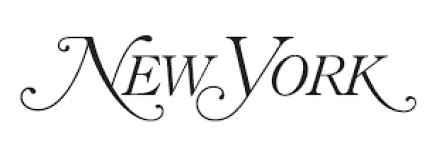
Albany Employment Law for Higher Education Professionals
Comprehensive Legal Guidance for College & University Staff
Higher education employment law is a multifaceted and critical area of legal practice that addresses the unique challenges college and university professors and staff may face. This area of law deals with a broad range of issues, including but not limited to employment contracts, tenure disputes, discrimination claims, sexual harassment allegations, Title IX charges and issues, and technology transfer agreements. As educators and professionals within academic institutions, these individuals encounter various employment-related issues that demand skilled legal counsel to safeguard their rights, protect their careers, and navigate complex legal disputes effectively.
At The Glennon Law Firm, P.C., we are experienced in handling employment law matters, specifically those related to college and university faculty and professionals. Our attorneys possess the knowledge and insights required to tackle even the most complex cases that arise in the academic sphere. Our commitment to offering high-level support means we take the time to get to know our clients personally and completely understand their specific situations.
Speak with one of our Albany higher education employment lawyers by contacting us at (518) 936-4095
Understanding Employment Laws for Higher Education Professionals
Within higher education employment law, numerous federal and state statutes play a pivotal role in shaping the rights and obligations of college and university professionals. Understanding these laws is essential for employees and institutions to foster a fair and equitable work environment.
Here are some key federal laws:
- Title VII of the Civil Rights Act of 1964: Title VII prohibits employment discrimination based on race, color, religion, sex, or national origin. For college and university professionals, this means that they should be protected from any form of discrimination or harassment in their workplace based on these characteristics.
- Title IX of the Education Amendments Act of 1972: Title IX is a crucial federal law prohibiting sex-based discrimination in educational programs and activities. It plays a significant role in addressing issues of sexual harassment and gender-based discrimination and promoting gender equity within academic institutions.
- The Age Discrimination in Employment Act (ADEA): The ADEA protects individuals 40 years of age or older from employment discrimination based on age. This law is particularly relevant in the academic setting, where experienced professionals may encounter age-related challenges or unfair treatment.
- The Americans with Disabilities Act (ADA): The ADA prohibits discrimination against individuals with disabilities and mandates reasonable accommodations to ensure equal opportunities in employment. Academic institutions must ensure that faculty and staff members with disabilities are given appropriate accommodations to perform their duties.
- The Family and Medical Leave Act (FMLA): The FMLA provides eligible employees with job-protected leave for certain family and medical reasons. For college and university professionals, this law allows them to take leave for personal or family medical issues without the fear of losing their jobs.
Addressing Unique Challenges in Higher Education Employment
College and university faculty and professionals can face unique challenges that can impact their careers and rights.
Let’s explore some of these issues in greater depth:
- Tenure issues: Tenure serves as a cornerstone for both faculty and institutions. The American Association of University Professors (AAUP) has been instrumental in defining professional standards and promoting economic security for professors. However, navigating the tenure process can be intricate, involving matters related to appointments, reviews, and evaluations. In some unfortunate cases, tenure denial may occur, leading to considerable distress for the affected faculty. When faced with such challenges, seeking legal recourse becomes essential to foster fair treatment and protect their academic standing.
Contract disputes and tenure revocation are potential hurdles that college and university faculty and professionals might encounter. Disagreements arising from contract terms, performance expectations, or misconduct allegations can escalate into serious legal conflicts. Having adept legal representation during such disputes is crucial to safeguarding the interests and reputation of the faculty members.
- Title IX Allegations: Title IX, a pivotal federal law, aims to protect individuals from sex-based discrimination in educational programs and activities. In the higher education context, Title IX allegations can arise from various instances of sexual misconduct and gender-based discrimination. College and university professionals may find themselves in investigations or lawsuits related to such allegations.
Understanding the intricacies of Title IX and its relevance in higher education is vital for both faculty and institutions. Navigating the process of handling and defending against allegations requires the help of seasoned legal professionals who can protect the rights of the parties involved while adhering to the law. - Technology transfer issues: Innovation and intellectual property play a significant role in academia, where faculty members may invent or contribute to groundbreaking technologies. However, disputes can arise when academic institutions attempt to monetize intellectual property (or fail to do so) without fulfilling their fiduciary duty to the faculty.
Drafting and negotiating technology transfer agreements are complex tasks demanding legal insights to protect the rights and interests of the faculty inventors. Additionally, resolving disputes related to technology transfer and licensing requires skillful legal advocacy to pursue fair outcomes beneficial to the academic institutions and the faculty.
Faculty and staff can navigate these challenges confidently by working with an experienced higher education employment law lawyer in Albany.
Personalized Legal Services for Higher Education Professionals
At The Glennon Law Firm, P.C., our Albany higher education employment attorneys use a personalized approach in every case we handle. We recognize that each client's situation is unique, and we take the time to get to know our clients personally and understand the nuances of their circumstances. This individualized attention allows us to tailor our legal strategies to meet the needs of our clients, delivering high-quality support and advocacy throughout their legal journey.
We stand ready to provide sound legal counsel. Call us at (518) 936-4095 or contact us online today.

-
We Focus on Our Client’s Unique Needs & Help to Devise a Unique Plan
-
We Are Consistently Included in the Super Lawyers® List
-
We Are Experienced in Litigating Financial Assets
-
We Are Continuously Included in Best Lawyers® & Best Law Firms®
-
We Provide Tailored Solutions With Discretion for Private Legal Disputes





































